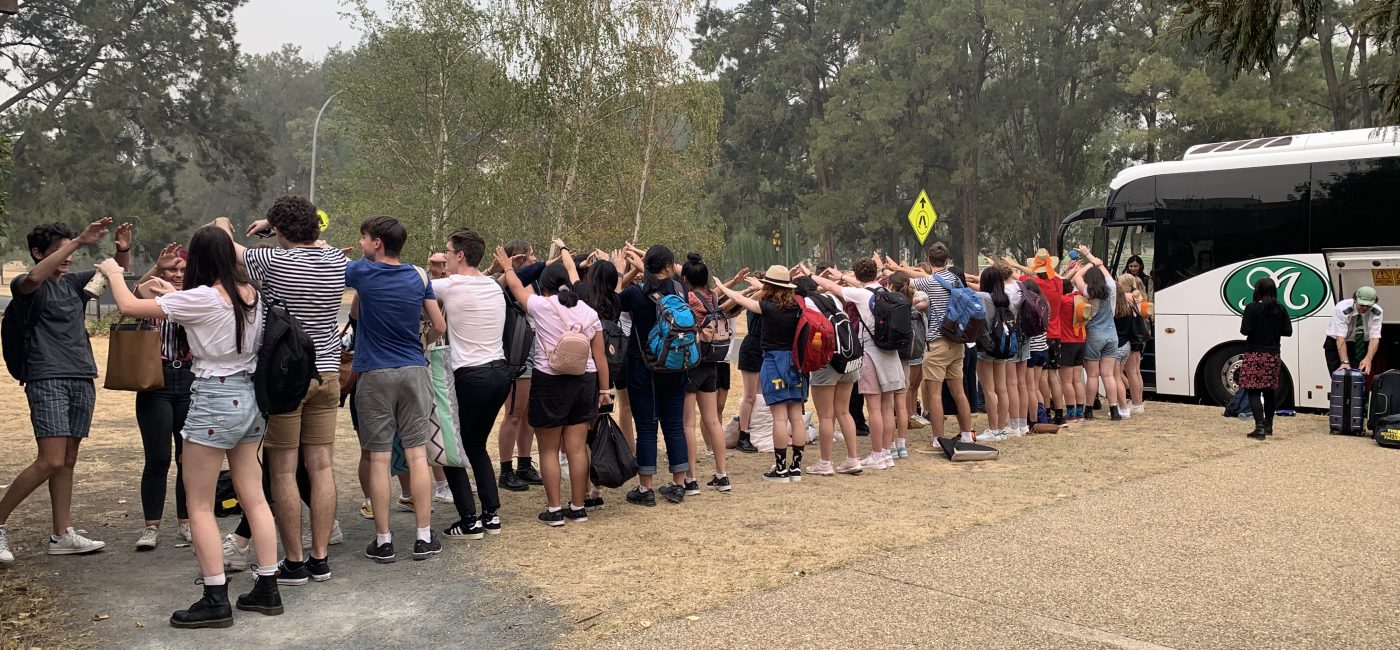
“We know around 75 per cent of the jobs of the future will require STEM skills, that’s why it’s so important we make sure our young people continue their STEM education and encourage them into future STEM jobs.” Karen Andrews - Minister for Industry, Science and Technology
One of the best-known science experiences in Australia for young people, the National Youth Science Forum (NYSF) Year 12 Program, kicks off it’s 37thyear on January 1, 2020. Designed to foster life-long science literacy, the NYSF program runs from 1-26 January and gives students real-life exposure to the diverse study and career options available in science, technology, engineering and mathematics (STEM).
During January, close to 600 students about to commence year 12 will get to live in at a University Campus for 11 days and experience what being a STEM student is like firsthand. The program runs over 3 sessions, with 400 students participating in two Canberra sessions at the Australian National University, and 200 participating in a Brisbane session at the University of Queensland. These students were selected from over 1400 applicants and will join the 12,000 NYSF alumni who are proud graduates of the program.
Minister for Industry, Science and Technology and Member for McPherson, Karen Andrews, congratulated participants on their selection to the 2020 NYSF Year 12 Program and encouraged them to have fun while making the most of their experience.
“We know around 75 per cent of the jobs of the future will require STEM skills, that’s why it’s so important we make sure our young people continue their STEM education and encourage them into future STEM jobs”, said Minister Andrews.
CEO of the National Youth Science Forum, Dr Melanie Bagg, said the program was transformational with approximately 90% of participants going on to study STEM in higher education.
“Importantly, students will build their first professional network with other participants, from all over Australia, who are also passionate about STEM. Over 70 past participants of the program join us as Student Staff Leaders and develop life-long mentoring and leadership skills", said Dr Bagg.
Due to the broad reach of over 1100 Rotary Clubs, the NYSF is able to host students from all over Australia. In 2020, 65% of participants selected are female and 38% are from remote and regional areas of Australia. An equitable program for all, over 40 students in need have received scholarships to assist and/or fully cover their program fees. The scholarships were made possible by grants from The Department of Industry, Innovation and Science, Toyota, Bayer and the South Australian Department for Education.
Alongside our Year 12 Program we run the NYSF National Science Teachers Summer School (NSTSS), giving Secondary School Teachers access to new and innovative STEM experiences.
Support from the Australian Government through the National Innovation Science Agenda (NISA), our Major Partner, Lockheed Martin Australia, our host universities and other partnersensures the NYSF continues to deliver unique and high quality, immersive STEM programs in Australia.
There will be a range of media opportunities available throughout each of the sessions. You can find out more about the National Youth Science Forum by going to our website HERE.
Media Contact: Leonie Keogh, leonie@nysf.edu.au, mobile 0411 269 103.
Key Highlights:
STEM visits
Our hands-on STEM visits are highly photographic sessions displaying cutting-edge science! These are just a few of the many things these students will try!
- lasers and nuclear physics
- sports science
- water sampling/chemistry
- live animal handling
- splitting rocks at a fossil site
- robotics
- soil sampling
- wetlands restoration
- forensic chemistry
- virtual reality
- designing satellites
- compounding pharmacy
- DNA extraction & analysis
- agriculture/animal science
Opening ceremony
Session A: 11 am-12:30 pm Wednesday 2 January at the Australian Academy of Science
Dr Marta Yebra is a Senior Lecturer at the Australian National University, Marta uses remote sensing data to monitor, quantify and forecast natural resources, natural hazards, and landscape function and health at local, regional and global scales. Full Bio HERE
Session B: 11 am – 12:30 pm Wednesday at the University of Queensland
Professor Paul Bertsch is the current interim Queensland Chief Scientist.He provides high-level advice to government on the role of science and research to meet Queensland’s challenges. He is also Deputy Director-Science of the Land and Water Business Unit at CSIRO. Full Bio HERE
Session C: 11am-12:30pm Thursday 16 January at the Australian Academy of Science
Brad Moggridge is an Aboriginal Water Expert and PhD student at the University of Canberra.Recently awarded the 2019 ACT Tall Poppy of the Year, Brad is also a part time Indigenous Liaison Officer for Threatened Species Recovery Hub as a part of NESP. Full Bio HERE
Science Dinners at the National Museum of Australia
Session A: 6 pm -10:30 pm Thursday 9 January
Keynote speaker, Dr Emma Tucker, Australian astrophysicist and medical doctorwhose unique background allows her to study the effects of space travel on the human body. Bio HERE
Session C: 6 pm-10:30 pm Thursday 23January
Keynote speaker, Professor John Shine AC, the ‘father of gene cloning,’and President of the Australian Academy of Science. Full Bio HERE
Science Dinner at Brisbane City Hall
Session B: 6 pm - 10:30 Thursday 16 January
Professor Tanya Monro FAA FTSE FOSA FAIP GAICD, Australia’s Chief Defence Scientist.Professor Monro is an Australian award-winning physicist known internationally for her work in photonics. Full Bio HERE
Hydrogen car
Session C: 3pm-4pm Thursday 23 January (Toyota - Hydrogen fuelled car)
This hydrogen-fuelled Toyota car will be transported from Melbourne to Canberra specifically for the program. We have some special opportunities available. More information about the car HERE.